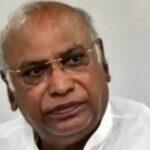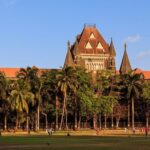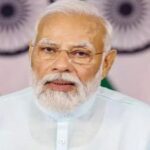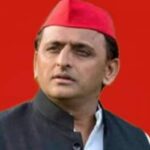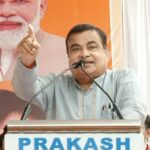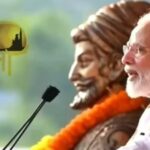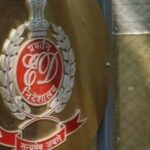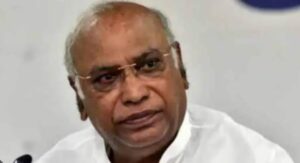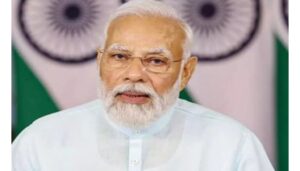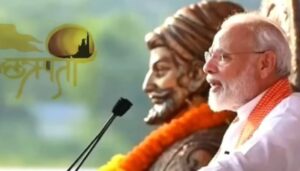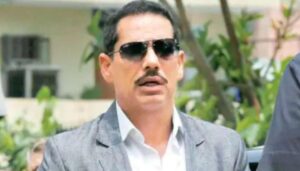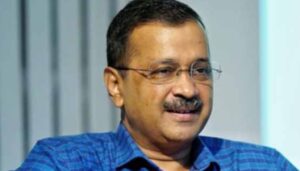
Can Arvind Kejriwal Fulfill His Duties As Delhi Chief Minister Even From Jail?
Tikam Shekhawat
New Delhi, 21st March 2024: Delhi Chief Minister Arvind Kejriwal’s arrest sent shockwaves through the political landscape as the Enforcement Directorate (ED) detained him following repeated summons. The arrest came at 7 pm on Thursday after the ED issued its tenth summon to Kejriwal, culminating in a search of his residence and subsequent arrest. Amidst the unfolding drama, Delhi Minister Atishi affirmed that Kejriwal would continue to fulfill his duties as Chief Minister, even from behind bars.
The ED’s relentless pursuit of Kejriwal stems from a contentious case related to the implementation of a new excise policy on liquor sales by the Delhi government in November 2021. This policy shift, aimed at wresting control of liquor shops from private entities to curb alleged mafia influence and boost government revenue, sparked controversy.
Subsequently, the Chief Secretary of Delhi submitted a damning report to Lieutenant Governor VK Saxena, highlighting economic irregularities in the excise policy. Prompted by these revelations, the Lieutenant Governor advocated for a CBI inquiry, leading to the registration of a case on August 17, 2022.
Several high-profile figures, including Deputy Chief Minister Manish Sisodia, three retired government officials, nine businessmen, and two companies have been charged in the case. In response to mounting scrutiny, the Delhi government revoked the contentious liquor policy on July 28, 2022. However, the ED intensified its probe by initiating a money laundering case on August 22, 2022. The legal net subsequently ensnared Sisodia on February 28, 2023, followed by the arrest of Sanjay Singh on October 4, 2023.
Kejriwal’s arrest marks a significant development in the ongoing investigation, with the ED signaling its intent to question him regarding his alleged involvement. However, the ED has not clarified the specific capacity in which Kejriwal will be interrogated, fueling speculation about his role. Sources suggest that the ED possesses incriminating evidence linking Kejriwal to the misuse of funds during the Aam Aadmi Party’s election campaign in Goa.
In defiance of the ED’s summons, Kejriwal cited ambiguity surrounding his role in the case, demanding clarity on whether he was considered a witness or a suspect. This standoff culminated in his arrest, highlighting the ED’s resolve to pursue all avenues of investigation.
Kejriwal’s detention raises pertinent questions about the legal and constitutional implications of arresting a sitting Chief Minister. While civil immunity shields public representatives from arrest in civil cases under Section 135(A) of the Code of Civil Procedure, criminal charges do not afford such protection. Kejriwal’s arrest underscores the stark reality that no public official, including Chief Ministers, is exempt from criminal prosecution.
The absence of explicit provisions mandating the resignation of elected officials following arrest adds another layer of complexity to the situation. Legal experts contend that the Representation of the People Act, 1951, does not compel the resignation of public representatives in the event of incarceration. However, the failure to step down voluntarily may precipitate a constitutional crisis, as witnessed in the case of former Jharkhand Chief Minister Hemant Soren.
While Kejriwal remains eligible to continue serving as Chief Minister during his legal ordeal, his refusal to resign could potentially destabilize the state government. Moreover, Section 8(3) of the Representation of the People Act, 1951, stipulates disqualification for individuals sentenced to two or more years, raising the specter of political repercussions.
The prospect of Kejriwal governing from jail raises additional legal conundrums. Retired DIG Jail of Chhattisgarh KK Gupta underscored the absence of provisions allowing for governance from incarceration, emphasizing the need for court approval. Despite Delhi Minister Atishi’s assertion that cabinet meetings could be convened in jail, legal experts maintain that such proceedings would contravene established norms.
The practical challenges of governing from jail, coupled with the absence of legal precedent, underscore the complexity of Kejriwal’s predicament. As the legal saga unfolds, all eyes remain fixed on the judiciary to navigate the delicate balance between legal procedure and political governance.

